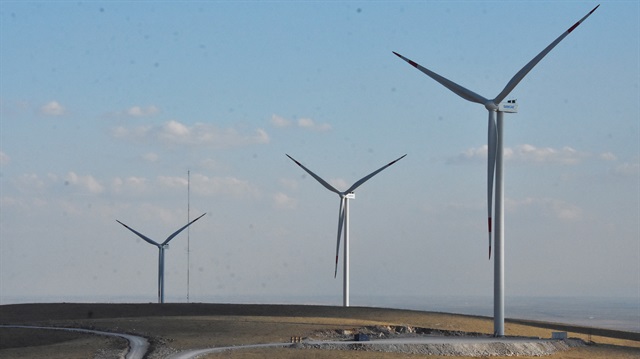
After hitting 31% renewable electricity production in August 2018, Turkey's authorities revise renewable target for 2023
Turkey revised its renewable energy target for 2023, with additional steps to increase the share of clean electricity production from 31 percent to more than 50 percent by 2023.
In May 2018, Turkey's Energy Watchdog head said that installed electricity capacity increased by 181 percent from 32 thousand MW over the last 15 years up to 90 thousand MW. The share of renewable electricity capacity out of total installed capacity reached 46 percent in May while renewable electricity generation was around 30 percent.
In 2013, in accordance with Turkey's National Renewable Energy Action Plan, Turkey's renewable electricity share was 29 percent and the share of installed clean energy capacity was around 40 percent.
After hitting 31 percent of renewable electricity production in August 2018, Turkey's authorities took concrete investment steps to revise its renewable target for 2023.
On August 3, Turkish President Recep Tayyip Erdoğan announced that the country's 100-day action plan to develop the domestic energy sector with domestic energy sources including wind, solar and geothermal power.
Previously he said Turkey aimed to have a foreign trade volume of $1 trillion and $2 trillion in gross domestic product.
As part of the country's 100-day action plan, the country aims to use more renewables through a series of tenders for solar power plants with a total capacity of 3 gigawatts (GW) and with an anticipated investment of nearly $4.8 billion.
The country also plans to boost its both wind and solar capacity by 10,000 MW each in the coming decade through renewable energy resources zone (YEKA) tenders.
The Turkish Ministry of Energy and Natural Resources will accept applications up to Oct. 23 for one of the biggest offshore wind plants in the world at 1,200 MW, which will also be the first of its kind in the country.
The Ministry will soon begin appraising consortium applicants for the wind tender, the date and place of which has yet to be confirmed. The ceiling price for one megawatt-hour in the reverse bid auction has been set at $8.
Part of the tender stipulates that the winning investor, who submits the lowest bid, will sign an energy purchase agreement with Turkey's energy and natural sources ministry for the first 50 terawatt-hours of electricity production starting from the first commissioning of the plant.
The tender specifications require 60 percent local equipment production and call for 80 percent of the engineers employed to be of Turkish origin.
Saros and Gallipoli located in the Marmara region and Kiyikoy in the Thrace were named the candidate regions for the power plant in March.
In April, Turkey's former Energy and Natural Resources Minister, Berat Albayrak, said that as Turkey ranks second after China in terms of world energy growth demand, it would increase its energy capacity amid a process of continuous development in the sector.
Albayrak asserted that new technology is an important element in Turkey's evolving renewables sector.
"We have seen in the last 20 years that the role of renewable energy has changed a lot and costs have dramatically fallen thanks to advanced technology," Albayrak said.
Meanwhile, to bolster Turkey's electricity sector, Serhat Cecen, the head of Turkey's Electricity Distribution Services Association (ELDER) said that around $23 billion was allocated for electricity distribution and privatization over the last 10 years.
A total of $13 billion was used for distribution and retail while $10 billion was allocated for the privatization of production facilities.
Loans covered 80 percent of the total amount for privatization while equities met the remaining 20 percent.
Despite the power sector expenditure, Turkey places importance on energy efficiency and aims to save $30.2 billion by 2033 thanks to its National Energy Efficiency Action Plan announced in April.
Both residential and industrial energy efficiency will play an important role in the action plan in which nearly $1 billion in savings would emerge from energy efficiency transformation in 1.7 million residences, and $10 billion in savings would be achieved in the industrial sector by 2023.
The plan includes 55 actions to develop energy efficiency measures throughout various sectors in industry, transport, construction, agriculture, and energy generation and transformation.
Albayrak said that energy efficiency is crucially important for a country like Turkey, which is not rich in conventional energy resources.
With the help of the action plan, investments of nearly $10.9 billion are expected by 2023, Albayrak asserted, adding that as a result 20,000 would be employed in the energy sector from mining to renewables, and upstream to natural gas.
The country will also be relieved of its obligation to invest $4.2 billion for the construction of power plants up to that time, the minister confirmed in March.


